Bachelor of Social Work
Degree Level Undergraduate
Year 2025
You're considered an Australian student if you are any of the following:
Degree Level Undergraduate
Year 2025
Entry Scores
2025 Guaranteed Entry
Year 12 (ATAR-based): 67.00
Year 12 (Grades-based): B,B,B
TAFE/RTO: DIP
View Guaranteed Entry Info
2024 Cut-Offs
Year 12 (ATAR-based):
- Internal: 67.00
TAFE/RTO: Cert IV
View full entry requirements
The admission criteria have been grouped to assist you to easily find the information most relevant to your circumstances. However, you may fit into more than one and the university will consider applicants against each of the relevant criteria.
Certain conditions apply. For more information refer to Appendix 4 of the University's Selection and Entry policy.
Applicants are required to meet one of the following criteria with a competitive result, and demonstrate that they fulfil any prerequisite requirements and essential requirements for admission:
Recent secondary education
Meet any prerequisite requirements with a minimum grade of C- or equivalent
AND
Applicants who have not achieved the Selection Rank required for automatic selection may be selected for any remaining places based on the grades of their year 12 subjects.
OR
Higher education study
OR
Vocational Education and Training (VET)
OR
Work and life experience
Please note: Mid-year entry will only be available to domestic students.
1ComparED (QILT) Graduate Outcomes Survey 2021-23 – Full-time Employment Indicator (Domestic Postgraduate). SA public universities. 2Your study will include 20 days of on campus, face-to-face learning in selected courses across the duration of your degree which is in accordance with AASW (Australian Association of Social Workers) requirements to ensure practical skills competency. Your degree will also include supervised placements. 32018 Excellence in Research for Australia (ERA). 4ComparED (QILT) Course Experience Questionnaire 2021-22 – Overall Satisfaction Indicator (Domestic Undergraduate and Postgraduate). SA Public universities. 5Ranked #8, ComparED (QILT) Student Experience Survey 2021-22, Skills Development Indicator (Undergraduate). Public universities.

This degree provides you with a sound knowledge of the political, behavioural and social sciences, and equips you with the skills to work in a range of fields in social work and human services. It has been developed around four major areas of study: social work theory; social work practice and skills; social policy; and social research.
You will gain practical experience as part of the degree’s field education placement component. This is a valuable learning opportunity where you will build industry networks and further enhance vital hands-on, practical skills necessary to succeed in your future social work career.
Students who have completed a TAFE Diploma in Community Services are eligible for 18 units of credit. Students who have completed a TAFE Advanced Diploma in Community Services are eligible for 36 units of credit.
Students studying this degree will be required to undertake checks through the Department of Human Services (DHS), a National Police Record Check, and complete a one-day Safe Environments for Children and Young People course prior to being accepted for work placements. Most placements may also require students to hold a current driver's licence and/or additional requirements as requested by a specific placement provider.

This degree focuses on four major areas of study:
You will also gain valuable professional experience when you complete 1,000 hours of work placements during your third and fourth years.
You can gain an extra qualification and broaden your career prospects by completing a Diploma in Languages.

Learn from industry experts and world-class researchers, gain practical experience in our on-campus Social Work and Human Services Studio, and build workplace networks during field education placements.
In our custom-built studios you will work alongside field practitioners and academic staff in simulated, real-life situations. Using recording equipment and cameras, you can review your work, receive feedback and learn from your experiences. Third and fourth year work placements will enable you to apply your knowledge and demonstrate your practical skills in a real-world scenario.
As part of your placement, you may have the opportunity to take part in UniSA’s South Australian Parliamentary Internship program. Students undertaking their second field placement in their final year of study in an undergraduate Social Science or Social Work degree, including double degrees, are eligible to apply for this opportunity.
You can also choose to study your degree externally to suit your lifestyle, work and family commitments1.
1Your study will include 20 days of on campus, face-to-face learning in selected courses across the duration of your degree which is in accordance with AASW (Australian Association of Social Workers) requirements to ensure practical skills competency. Your degree will also include supervised placements.
Are you ready to enhance the wellbeing of others through advocacy, social change, relationship building and empowerment? Explore a degree in social work and discover the meaningful role social workers serve in building communities.
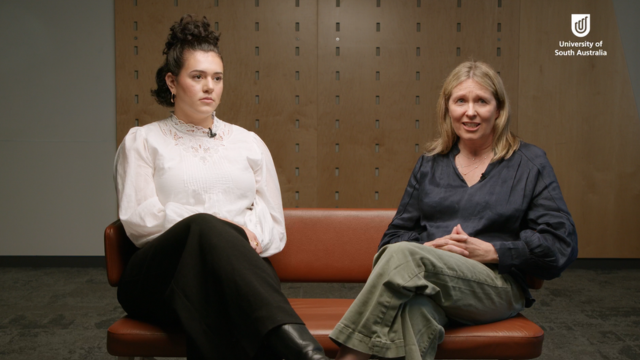
As a social worker, you may provide support, counselling and service referrals, conduct research, and practise advocacy, to improve individual wellbeing and promote a fair, inclusive society. If you have a passion for human rights and a strong commitment to social justice, there are a number of employment opportunities in an array of sectors, including:
Graduates are eligible for membership of the Australian Association of Social Workers.
Applying to study with us:
Australian
There are other pathways you can follow to study this degree, including:
This degree is available for deferment. This option is made available by responding to your offer during the application process via the SATAC website. Applicants who receive an offer into a midyear degree are eligible to defer for six months.
Every year, over 2,500 UniSA students are supported in their studies through scholarships and grants worth millions of dollars. Check out the scholarships below. One of them may be perfect for you. Visit our scholarships page for more.
$5,000 scholarship for South Australian students with an ATAR of 99 who enrol to study a UniSA undergraduate degree.
Up to $10,000 per annum (full time) for South Australian students who obtain an ATAR of 99.95 or IB equivalent and enrol to study at UniSA.
Our campuses are home to fantastic facilities including modern lecture theatres, libraries, workshops and laboratories, as well as spaces that simulate real work environments. But you’ll also discover that your journey at UniSA is about social experiences, healthy living and getting involved. You’ll find student sports and fitness facilities, community clinics, tech zones and chill-out spaces. There are campus sport activities to keep you active, and if you are keen to explore the social side of university life, there are movies, cooking demonstrations, parties and loads more.
Adelaide also has a variety of accommodation options to suit different requirements and budgets. Options include dedicated student accommodation and private rentals. See our long-term accommodation pages, or explore our student accommodation by Scape on Bank Street in Adelaide’s lively cultural precinct, an ideal location for students. It is within easy reach of UniSA’s city and metropolitan campuses, Rundle Mall shopping, the Central Market, Chinatown, and the West End’s vibrant nightlife. It is also across the road from the Adelaide train station, and on bus and tram routes.
As a social work student you will have access to our state-of-the art Social Work and Human Services Studio, which is equipped with recording equipment and cameras so that you can practice your skills with the help of field practitioners and academic staff.

The way you apply for UniSA will depend on the undergraduate or postgraduate coursework degree you're interested in studying.
The majority of applications are made via the South Australian Tertiary Admissions Centre (SATAC). Check out more information on the SATAC website and follow the appropriate process for your degree of interest.
There are a small number of degrees that you need to apply for through direct application processes. The process you need to follow will be listed on the 'How to Apply' section of the degree homepage, but you'll also be taken to where you need to go if you hit the 'apply' button.
If you are interested in studying one of our 100% online degrees you'll need to apply directly to UniSA Online.
You can find more information about the application processes for UniSA on our How to Apply webpage.
If you're more interested in applying for a postgraduate degree by research, check out and follow the information in our step by step guide to applying.
Applications for all degrees will close ahead of study commencing, but the timelines may vary for undergraduate and postgraduate degrees.
The deadline to apply to study a degree at UniSA for semester one (commencing late February) and be guaranteed equal consideration is generally in very late November or early December. While you may be able to apply after this date, you are not guaranteed to be considered equally with other applicants and your application may not be assessed in time for the main round of offers. More competitive degrees may not make any offers after the main offer round. Find more information on the Key Dates section of the SATAC website, but you can also call the Future Student Enquiries team for more information on 08 8302 376.
Many postgraduate by coursework degrees do not have set closing dates. The exceptions are highly competitive degrees, so it is best to check – either on the degree homepage on the SATAC website or by checking with our Future Student Enquiries team.
As most postgraduate applications are assessed as they are submitted and offers are continuous, there are no set closing dates for applications. Degrees can be filled and closed with little notice so it is best to apply as soon as possible to avoid missing out on a place. For more information, please contact our Future Student Enquires team on (08) 8302 2376 or submit an enquiry.
You may be eligible for credit or advanced standing for your chosen UniSA degree based on your previous studies, if they are in a related area and completed within a certain timeframe. Receiving credit or RPL will reduce the number of courses you undertake within the degree, and may also reduce the overall duration of your degree. You can read more about our pre-existing credit agreements through our online Credit Assessor. If you have related industry experience, you may also be eligible to receive recognised prior learning (RPL) for this experience. Credit and RPL is assessed by the Program Director once you've received an offer, and you apply through UniSA's current student experts, Campus Central.
Future Student Enquiries welcomes the opportunity to meet with you to discuss your study options at UniSA. We can discuss degree information, entry requirements and pathways, applications, general career outcomes and student life, so you have the information to make the best study decision for your future. Head to our Book an Appointment webpage to find a date and time to speak with us, and take your next steps on journey to university study.
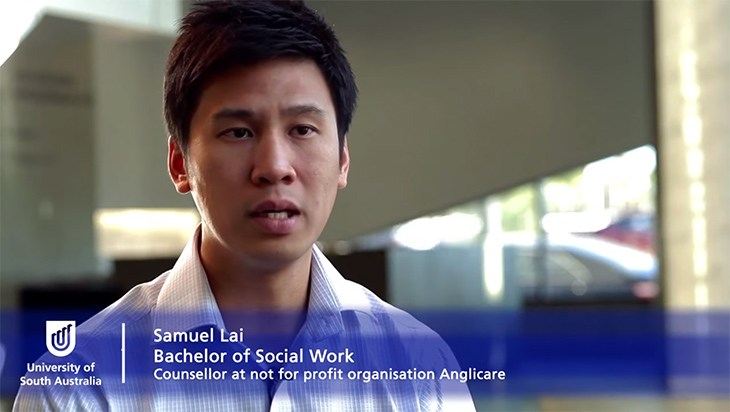
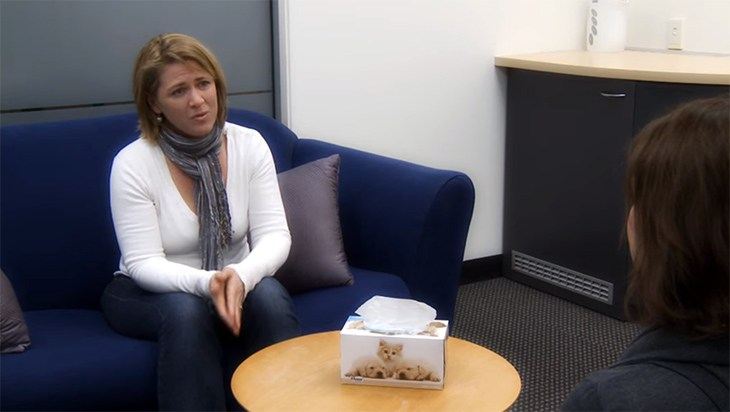
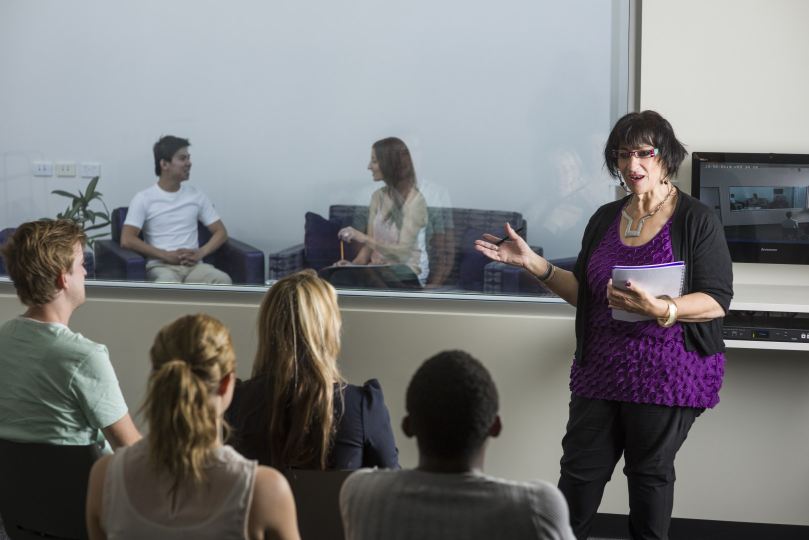
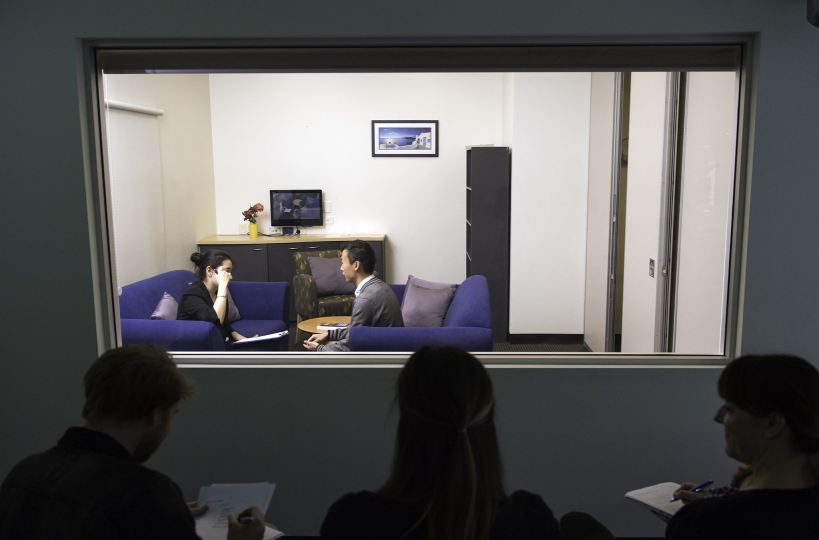


Bachelor of Social Work student Jarrod shares his experience of his rural placement at the Environmental Centre in Port Pirie, supported by UniSA’s Department of Rural Health.

Meet Emily – an international student at the University of South Australia. Follow her as she goes about her day on campus, living in the city of Adelaide.